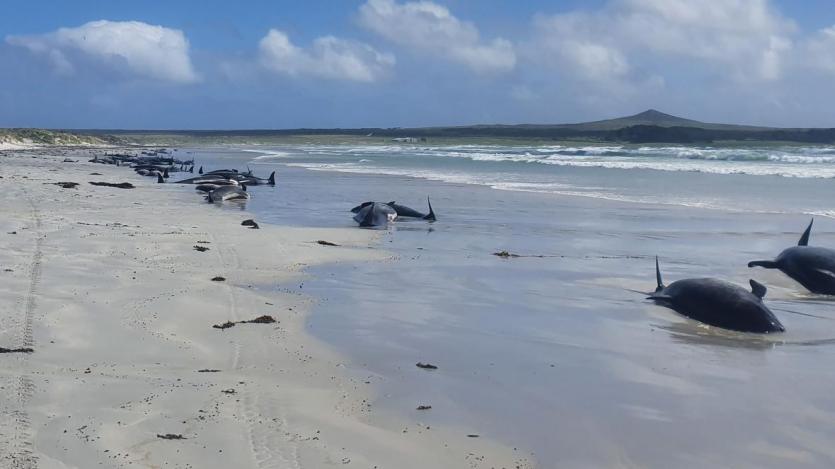Some of the pilot whales stranded on the Chatham Islands in New Zealand. Photo:AFP/Getty
Over 120 Pilot Whales Killed in Mass Beaching in New Zealand
By Patryk Krych | The World Daily | NOVEMBER 25th 2020
Following a massive stranding of well over a hundred pilot whales and bottlenose dolphins on the Chatham Islands, 100 of the animals had been confirmed as dead with 26 having had to be euthanised once it was acknowledged that there was little that could be done to save them.
The New Zealand's Department of Conservation (DOC) recently spoke out about the mass stranding of whales and dolphins on the remote Chatham Islands, located around 800 km (497 miles) off the East coast of New Zealand.
The Department said that to their knowledge, 97 pilot whales and 3 dolphins were killed due to the mass stranding, for which the cause is also under prompt investigation. It’s not an entirely unusual incident, with New Zealand’s coasts suffering frequent strandings of this type from marine animals. There was even a similar incident along the nearby Australian coasts a few months back in late September, and on a much larger scale.
Back in the year 1918, an infamously deadly stranding had taken place along the same coasts of the Chatham Islands and had thus taken the live of nearly 1,000 marine animals. The cause of such annual incidents has baffled scientists and marine biologists for many decades.
New Zealand officials have released formal reports about the present incident on Wednesday, though the DOC had learned of this incident on Sunday. Though the strandings were discovered on the weekend, attempts at a rescue were severely hindered by the remote nature of the islands, and the subsequent difficulty in deploying assistance.
“Only 26 of the whales were still alive at this point, the majority of them appearing very weak, and were euthanised due to the rough sea conditions and almost certainty of there being great white sharks in the water which are brought in by a stranding like this,” said Jemma Welch, a DOC Biodiversity Ranger.






